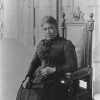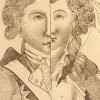
Troy J. Bassett, “‘More than a Bookseller’: Iredale’s Library as the Center of Provincial Literary Life”
Andrew Iredale welcomed Her Royal Highness Princess Victoria and her cousins to his library in Toquay, Devon on 1 September 1898 where the group bought books and photographs. Founded by Iredale in 1872, Iredale’s Library became the “centre of literary life” in the seaside resort community well into the twentieth century. This article considers the circulating library’s role in the community: in addition to selling and lending books, the library served as a place for public and private meetings, third-party business transactions, and interpersonal networking. As the history of Iredale’s Library illustrates, provincial circulating libraries played a vital role in communities well beyond their money-making operations.

Stephen Hancock, “On the Overthrow of the Hawaiian Monarchy, 1893”
Near the turn of the nineteenth century, the Hawaiian Monarchy was formed as the islands were unified. The system was a hybrid of European monarchical government and Hawaiian practice, and it presented a strong national image to the world as Hawaii sought to maintain its independence. By the end of the century, that Monarchy had been overthrown. This article argues that, while the paradigm of Monarchy was integrated into Hawaiian governance as a way to shore up independence, it was ultimately a form of government that accommodated capitalism in Europe, serving unwittingly to pave the way for capitalist interests in Hawaii as well.

Ellen Malenas Ledoux, “Florizel and Perdita Affair, 1779-80”
This article examines the cultural and political significance of the Prince of Wales’s early 1780s involvement with Drury Lane actress and poet Mary Robinson. Rather than just a romance between two public figures, the “Florizel and Perdita Affair” had wide-ranging effects that, when examined, offer meaningful insight into everything from the weakening influence of the Hanover dynasty and the campaigns of Whig opposition candidates to the aesthetics of formal portraiture, political cartoons, and popular fashion.
